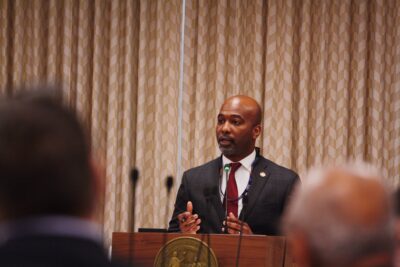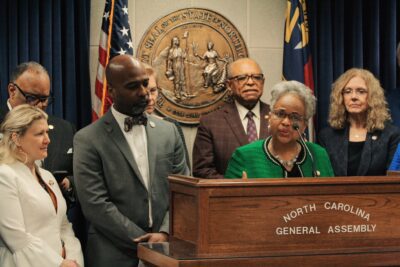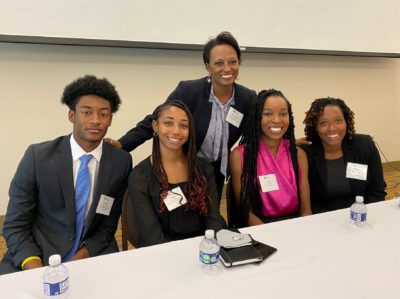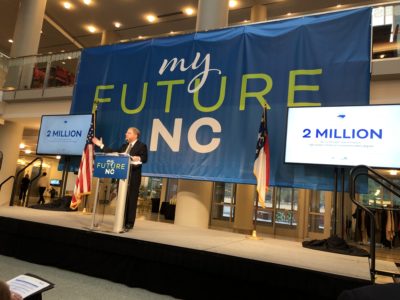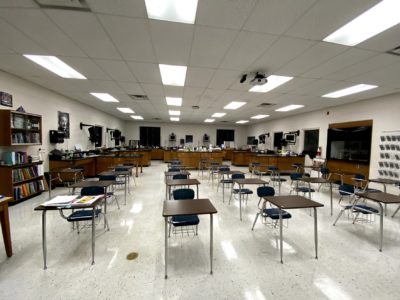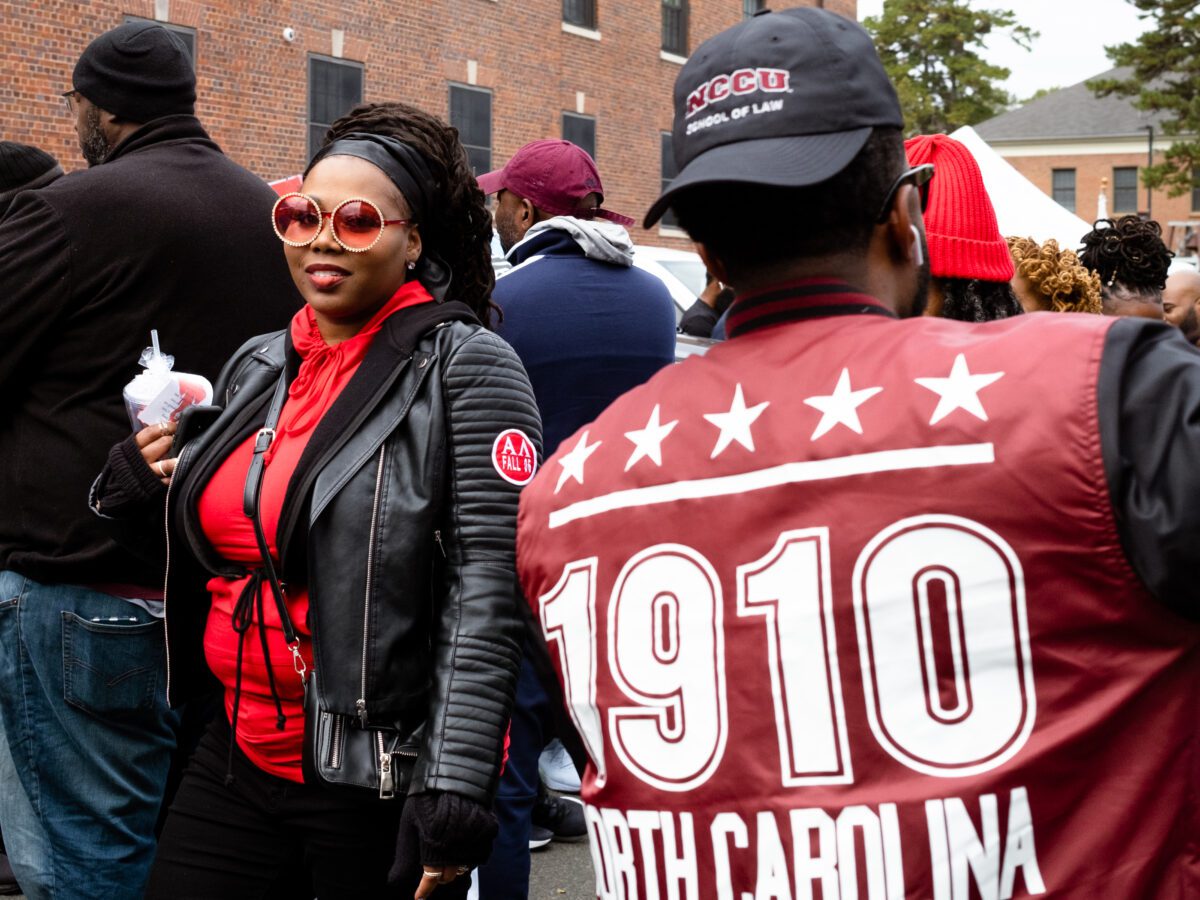
|
|
Although they only make up a small portion of colleges in the United States, historically Black colleges and universities (HBCUs) are responsible for 13% of bachelor’s degrees earned by Black students. According to a report by the United Negro College Fund (UNCF), a full-time employed HBCU graduate can expect to make $1 million more than they would have without their college degree.
The U.S. Department of Education announced additional investments in HBCUs and highlighted their impact at the National HBCU Conference on Monday. The conference is a part of the work being done by the White House Initiative on Advancing Educational Equity, Excellence, and Economic Opportunity through Historically Black Colleges and Universities.
In his remarks, President Joe Biden said that he believed America was a country big enough for everyone to succeed.
“And there’s been no more important voice for that truth than the Black community and our HBCUs,” Biden said. “That’s what I see in your students: future doctors and researchers curing cancer, artists shaping our culture, fearless journalists and intellectuals challenging convention, preachers and advocates inspiring us all.”
What are HBCUs?
HBCUs are institutions that were established with the mission of educating Black Americans. They were founded prior to the Civil Rights Act of 1964, when segregation was still legal in schools.
North Carolina has more four-year HBCUs than any other state in the country. It is also home to the largest HBCU in the country, N.C. A&T State University.
The full roster of HBCUs in North Carolina includes:
- Bennett College
- Elizabeth City State University
- Fayetteville State University
- Johnson C. Smith University
- Livingstone College
- North Carolina A&T State University
- North Carolina Central University
- St. Augustine’s University
- Shaw University
- Winston-Salem State University
Challenges HBCUs face
Discrepancies in public and private funding lead to the lack of money available at HBCUs. According to the Council of Economic Advisers, HBCUs have received less state funding than non-HBCUs in the past — particularly land grant institutions. HBCUs also tend to have smaller endowments than other institutions, meaning that they have fewer donations coming in.
CEA also said that a lot of HBCU students tend to have a lower socioeconomic status. According to the National Center for Education Statistics, during the 2019-20 school year, 90% of all undergraduate students at HBCUs received some form of financial aid. Of those students, 83% received grants and 65% took out student loans.
Efforts to support North Carolina’s HBCUs specifically come from the NC 10 initiative, named in reference to the number of institutions in the state. The coalition works as a collaborative community with the intent of making an economic case for the institutions’ impact while supporting the recruitment, retention, and on-time graduation of their students.
According to a report that came from a listening tour led by the Center for Racial Equity in Education, although the institutions have shared history and needs, each school has to be uniquely accommodated.
Findings in the report came from conversations and campus visits made in 2021. Based on those meetings, the report made recommendations to various constituencies across the state of North Carolina, including policymakers, stakeholders, and philanthropists:
- Develop a shared agenda based on commonly held strengths and areas of need
- Formalize a collaborative network among all 10 institutions for mutual benefit
- Adopt best practices for increasing attainment
- Replicate federal efforts to support HBCUs at the state level
- Pass legislation that modernizes HBCU infrastructure and enacts restorative funding
- Establish a North Carolina Office of HBCUs
- Tell the full stories of the NC HBCUs
- Financially support a NC HBCU
- Make the economic case for supporting NC HBCUs
- Grant NC HBCUs unrestricted gifts
- Form a philanthropic giving network focused on NC HBCUs
The impact of HBCUs
Based on the most recent data available from the NCES, North Carolina’s HBCUs enrolled 39,255 students in fall of 2022. In the 2021-22 school year, they conferred nearly 8,000 degrees and accumulated about $1.2 million in expenditures. National expenditures were about $10 million.
Nationally, the total economic impact for HBCUs is about $16.5 billion. North Carolina accounts for $1.8 billion of that. The estimate made by UNCF includes direct spending from the state on faculty, employees, academic programs, and operations as well as spending by students. The state’s HBCUs also created 16,242 jobs.
HBCU students have previously visited the North Carolina legislature to advocate for their schools and express how historically underfunded they have been.
Sen. Gladys Robinson, D-Guilford, a co-chair of the HBCU caucus, told the audience at that press conference that lawmakers should learn more about HBCUs and the need to advocate for their financial needs.
“Our salaries of our faculty at most HBCUs are not on par with the other white public universities in this state,” Robinson said. “We lose good faculty … they go where the money is.”
While economic challenges loom, HBCUs have not seemed to have lost popularity.
Some North Carolina HBCUs have reported record-breaking enrollment in fall 2024. Shaw University had a 36% increase in new student enrollment this year compared to last fall. Fayetteville State University saw a significant increase in transfer and military-affiliated students. Elizabeth City State University had a 20% increase in first-time freshmen, and Johnson C. Smith saw their largest incoming freshmen class since before the Covid-19 pandemic. North Carolina Central University’s total student enrollment grew more than 8% this year.
“The growth at North Carolina Central University reflects our pledge to provide bold, transformative experiences for our students,” Karrie G. Dixon, chancellor of NCCU, said. “With the largest first-year class in school history and notable increases in online, adult, and military-affiliated students, we are dedicated to offering accessible, high-quality education. We will continue to strategically invest in innovative programs and facilities to empower our students for academic and professional success.”
Federal investments
On Monday, the Biden-Harris Administration announced another $1.3 billion in federal investments for HBCUs. Coupled with what was previously announced, that is a record $16 billion in federal investments in HBCUs since the 2021 fiscal year, according to the press release.
Most of the funding announced Monday will go to research and development capacity building. The administration said it aims to help the institutions make strides in science, technology, engineering, and mathematics fields. The rest of the money will go to need-based grants and other federal programs such as Pell Grants.
Despite representing only 3% of colleges and universities, HBCUs provide college access to twice as many Pell Grant-eligible low- and middle-income students as non-HBCU institutions.
Secretary of Education Miguel Cardona said that American democracy will live or die based on the ability to embrace the beauty of diversity.
“That beautiful diversity is the strength of our HBCUs,” Cardona said. “That beautiful diversity is what makes us competitive as an economy, strong as a society, and exceptional as a nation on the world stage.”
The administration also awarded grants to eight individual HBCUs, including North Carolina Central University and Shaw University. Goals from the funding include diversifying STEM fields and producing more teachers of color.
“We need HBCUs to help us meet this challenge – just as we need you to help us prepare more teachers of color. Our teaching profession should be as beautifully diverse as our classrooms,” Cardona said.



